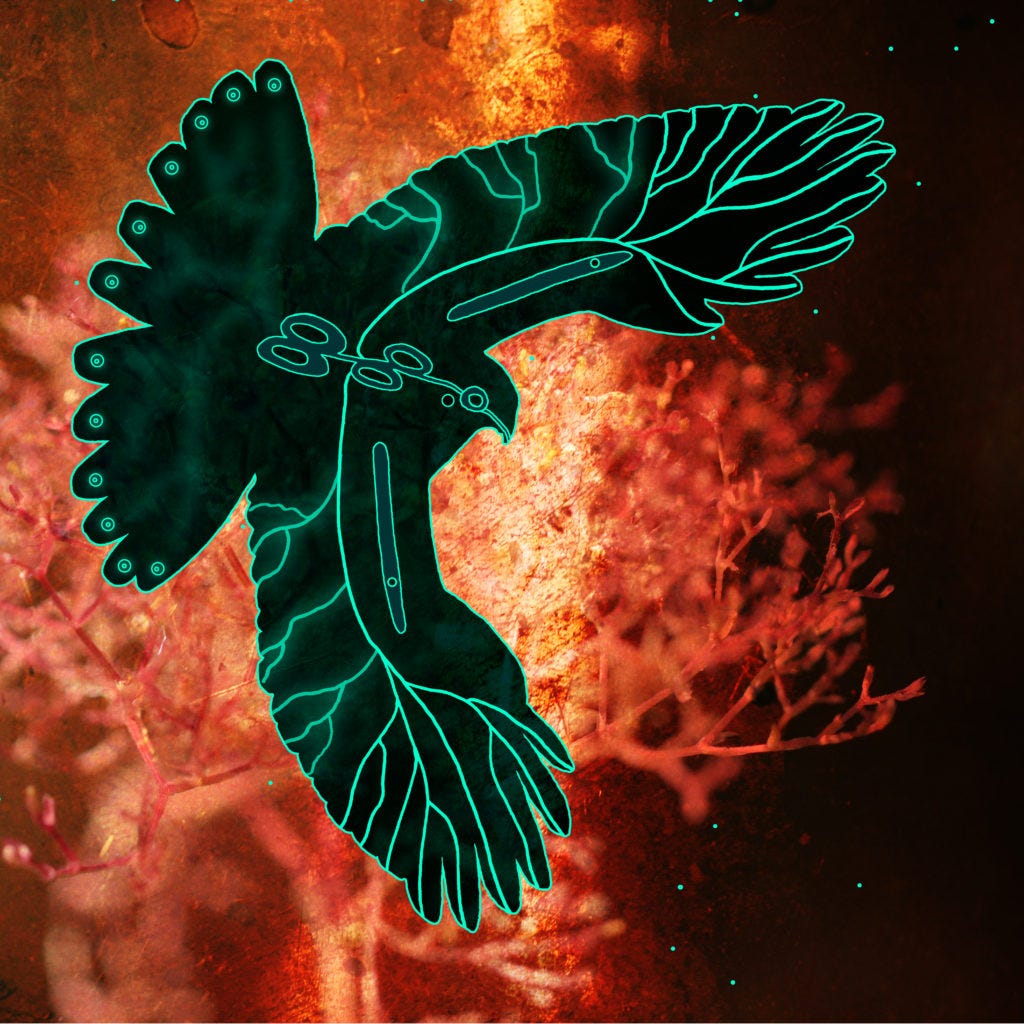
Thunderbird Strike is a 2D side-scroller created by Elizabeth LaPensée, an Anishinaabe, Métis, and Irish games developer, and assistant professor of media and information at Michigan State University. Recently named best digital media work at the imagineNATIVE Film + Media Arts Festival, Thunderbird Strike places us in the role of “a thunderbird protecting Turtle Island with searing lightning against the snake that threatens to swallow the lands and waters whole.”
It’s the first time a game has ever asked me to take on an oil pipeline, specifically the Enbridge 5 pipeline — all without killing a single person.
And video games have asked me to kill a lot of people.
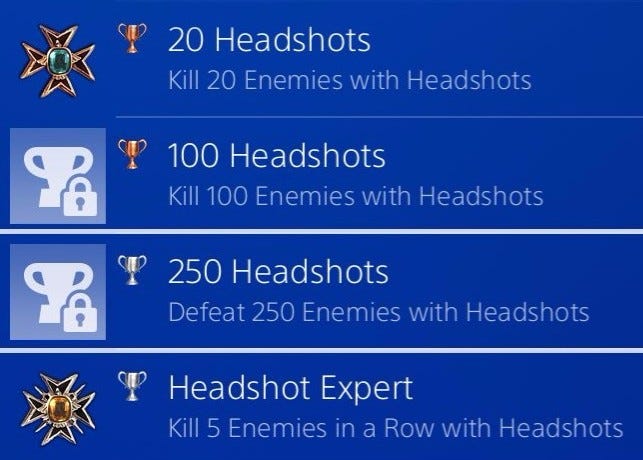
In 30 years, video games have asked me to commit nearly every conceivable act violence a human body is capable of. A lot of times against brown people, or at the very least, stand-ins for brown people. I’ve stripped bodies and villages for resources. I’ve executed people who surrendered. I’ve waged a multi-century campaign of state violence against rival nations. I’ve colonized, repeatedly. I’ve unlocked achievements for shooting brown people in the head. I’ve been given trophies for throwing “just one more dead Black body on the pile.”
And video games have almost exclusively made me do this with the avatar of a stone-faced white man. Rarely has a game allowed me to be brown, asked me to think about what it’s encouraging me to do, or leave people alive.
A lot of video games demand that we kill.
Sometimes this killing is framed as resistance. Resisting Nazis, aliens, rogue AI, or government crackdowns on “Personal Liberties.” These protagonists are usually white guys fighting for white guys. It is nearly unheard of for a video game to allow people of color a chance to participate in our own resistance, against our oppressors, on our terms. The times we do get to resist as protagonists of color (like in Infamous: Second Son or Watch Dogs 2) it’s always ultimately for the benefit of white hegemony. Our resistances are too often demonized, ignored, or co-opted.
On September 3, 2016, during the peak of the #NoDAPL resistance, LaDonna Brave Bull Allard, a historic preservation officer for the Standing Rock Sioux wrote:
The U.S. government is wiping out our most important cultural and spiritual areas. And as it erases our footprint from the world, it erases us as a people. These sites must be protected, or our world will end, it is that simple. Our young people have a right to know who they are. They have a right to language, to culture, to tradition. The way they learn these things is through connection to our lands and our history.
If we allow an oil company to dig through and destroy our histories, our ancestors, our hearts and souls as a people, is that not genocide?
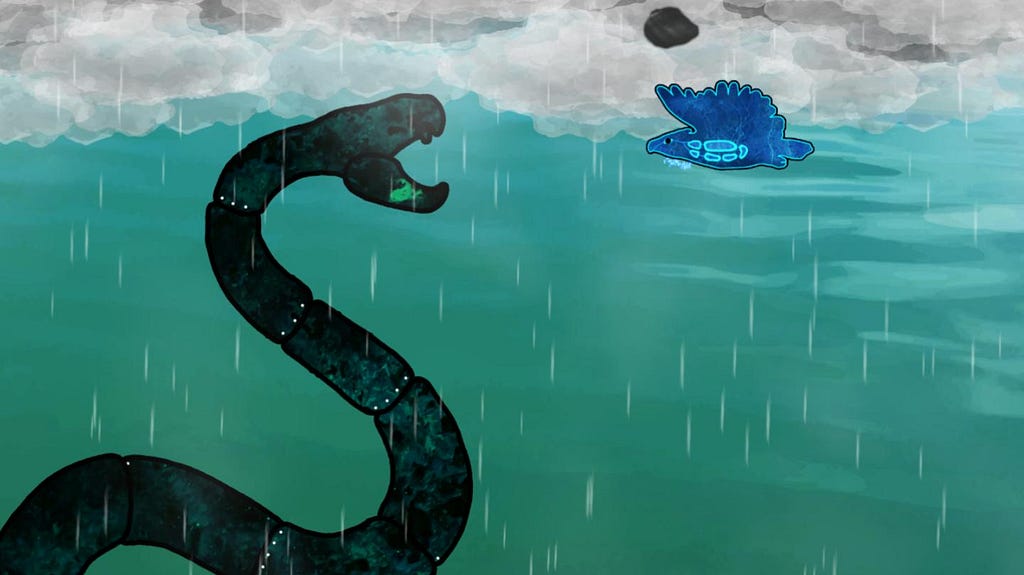
Thunderbird Strike is indigenous resistance. Not to some extraterrestrial threat or zombie apocalypse. No, Thunderbird Strike is a resistance against colonization, against the dehumanizing and destructive forces of capitalism, against those who would deny Native sovereignty, and especially against fossil fuel conglomerates. It resists not simply through destruction — players are rewarded for revitalizing living creatures. It’s a resistance to a centuries long campaign of state-sponsored genocide. And it’s powerful, because nothing scares white hegemony more than being resisted.
But as MPR reports:
Toby Mack, president of the Energy Equipment and Infrastructure Alliance, said his group is concerned the game could inspire users to do damage to actual pipeline infrastructure.
“We don’t think there’s any place for this kind of material being out there,” he said. “The consequences of somebody committing an act such as you can on the video game is just horrific.”
Hundreds of games ask us to indulge in acts of state-sponsored terrorism, reproduce real acts of violence against marginalized people, and glorify our abilities to be killers — without this kind of criticism or calls for action. The US military even uses taxpayer money to create award-winning video game recruitment tools. And the criticism often feels far too lacking.
Thunderbird Strike does not encourage violence. Their problem is that this game encourages resistance against white hegemonic destructors.
But Mack isn’t alone. Minnesota State Senator David Osmek felt the need to also wave his “fiscally conservative” clammy white finger saying, “Minnesota taxpayers expect their money to be invested in Minnesota, not in funding an eco-terrorist version of Angry Birds.”
My grandfather once told me that when the people at the top are mad at you, you’re doing something right. So the morning my partner told me Elizabeth LaPensée’s latest work had made it on Fox News, I’ll admit I felt a sense of rare Native visibility and pride. White men were scared.
But I also felt fury. And it was a fury that grew the more I saw articles and outlets picking up the story using the same word over and over again:
Terrorism.
A word that rarely, if ever, gets applied to violent white men.
As much as you’d think oversaturation of the word “terrorism” would have dulled the usage, it’s something the average American can’t let go of. The status quo somehow keeps it alive. It’s a label they can apply to every Black and brown person who refuses to submit to their authority, it’s a label that fascism and white supremacy cannot live without.
Thunderbird Strike is a game about refusing to submit. Refusing to submit to the deprivations of energy companies who can’t stop drilling and fracking our planet to death. Refusing to submit to capitalism that demands extracting every scrap of value from the people forced to live under it. Refusing to submit as Native sovereignty is further eroded by governments with no intention of honoring treaties.
White men have been in power for a long time and they don’t like losing that power. When you’ve spent centuries in control with unfettered access to extracting profits from land and people — anyone who dares to oppose you is your enemy.

Nothing in Thunderbird Strike even comes close to advocating anything like terrorism. It’s certainly not a “How-To.”
Thunderbird Strike is not a game that asks us to indulge in unrelenting bloodlust. There are no politicians to assassinate, no democratically-elected governments to destabilize in foreign countries, there are no waves of militarized police or federal forces armed to the teeth with “bean bag” shotguns, armored vehicles, and tear gas, and there certainly aren’t any civilians who can become “collateral damage.” All of which are very real things that video games continue to replicate.
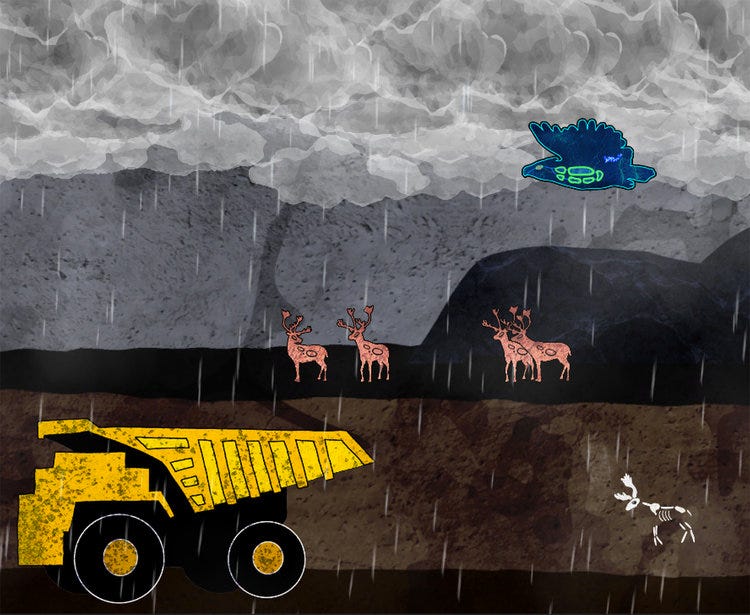
Thunderbird Strike tasks us with one mission — defend the sacred. A mission it communicates through cutscenes and gameplay that asks us to remove refineries and trucks, to combat a leaking pipeline, and bring back to life animals that have died from the devastation caused by oil companies. Neither awards more points than the other, healing and removal are valued equally. There are no trophies for “sick headshots” in Thunderbird Strike. This is a game that values the balance of nature more than marksmanship parlor tricks.
And it is that mission that has Minnesota legislators like Osmek demanding that an indigenous artist repay the grant she was awarded specifically to create this game.
Their stated reason? LaPensée moved from Minnesota to Michigan. However, as she explains — what was outlined in the grant was finished in Minnesota, fulfilling her obligation.
The real reason is that these grown men are behaving like petty, vindictive, terrified children because they profit from favors paid to destructive oil companies. Oil companies who are mad their thralls could allow something like this to happen. So they’re attacking and intimidating a creator, an educator, an indigenous woman — this is colonial violence.
This is terrorism.
With Thunderbird Strike, we finally have a game about resistance to the insidious white tyranny games usually have us supporting uncritically. This is important. These are games we need — ones that show alternatives to colonial violence and encourage us to participate in dismantling oppressive systems through direct action.
I hope in the future that there are more games about resistance by creators of color, about people of color. For too long video games have asked players to engage in violence against marginalized people from the point of view of white supremacy. They’ve helped entrench ideas that “both sides are wrong” that “the oppressed are just as bad as their oppressors.” I hope our stories of resistance become too much for white supremacy to handle, that these games become too numerous for them to possibly go after. These are the games we need in a time when white supremacy and virulent racism are not just openly accepted — they are publicly lauded and mandated.
It’s time we have games where we can own our resistance.
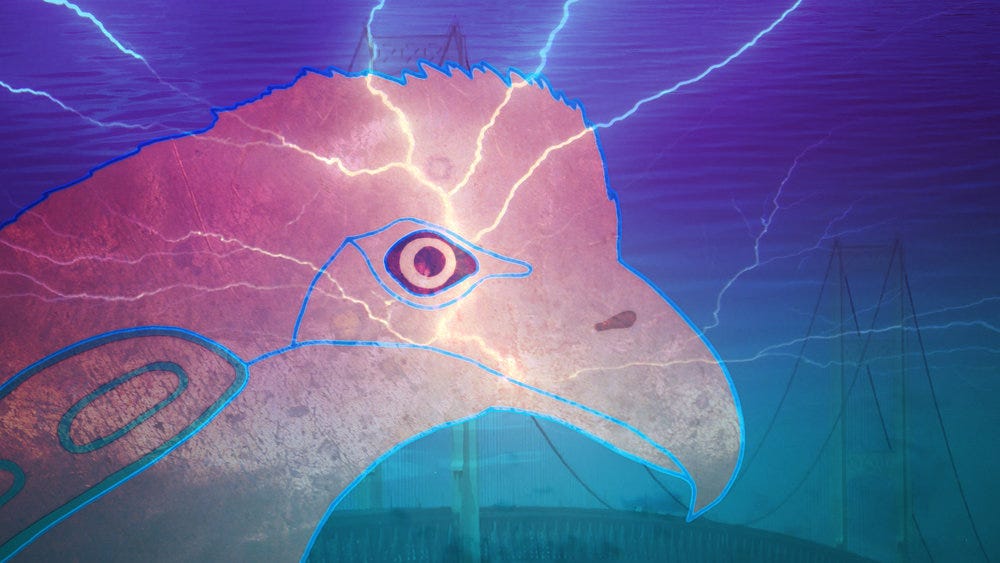
Thunderbird Strike is a free download for Windows PC and will soon be available on Android and iOS. Go here to find out more about the actions being taken against creator Elizabeth LaPensée and how you can help.
Owning Our Resistances With Thunderbird Strike was originally published in Anomaly on Medium, where people are continuing the conversation by highlighting and responding to this story.
